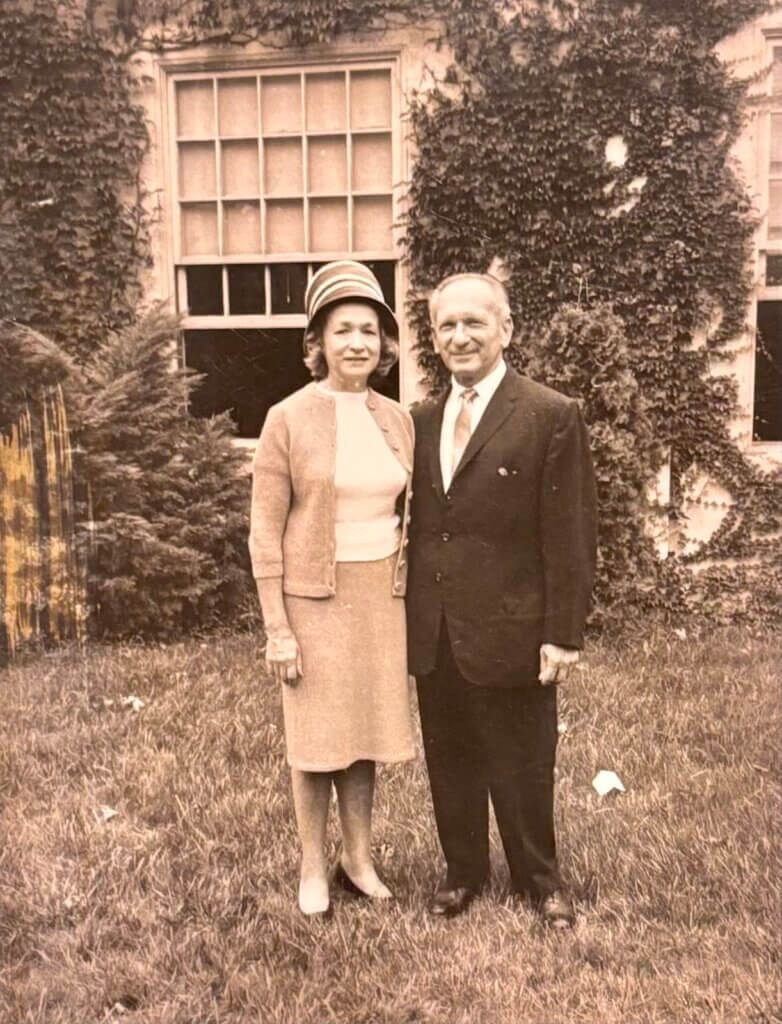
I recently met one of my dad’s childhood friends, who talked fondly of the connection between their families. I was struck by one particular recollection: my grandmother didn’t generally attend their gatherings. I later asked my dad why, and he shared the following:
At the age of two, my grandmother immigrated with her parents to the US. As the oldest of six siblings, she was expected to help support the family so that the other children could receive an education. Starting at a very young age, she worked in her father’s grocery store. It is unclear when Grandma stopped attending school entirely, but by the time she was 16, she was working full-time as a secretary while her siblings finished high school and then attended a local college. Like many families, hers was affected by the Great Depression, and she and her parents were forced to explore creative ways to earn a living and stretch their dollars.
I always noted that Grandma seemed so serious, that she didn’t get down on the floor and play games with us, and that she didn’t encourage or participate in our fun-filled childhood antics. She seemed focused on her work and on earning a living, which for some of my childhood included running a campground and keeping the small store stocked with items she purchased in a discount grocery.
While I had heard some of these details before, I hadn’t fully appreciated the “why” behind Grandma’s behaviors and perspective. As a child, I simply decided that she wasn’t fun or playful, and I didn’t seek her out or try to spend time with her (I did thoroughly enjoy her delicious cookies, and I received boxes of them, carefully wrapped and shipped, through my college years). I even remember stories of my dad as a child asking her where she attended school, and her answer was the “College of Hard Knocks.”
Now as I think back on my relationship with Grandma, I realized that my lack of curiosity about her, my assumptions, and my perceptions kept me from cultivating a deeper connection or trying to understand how her experiences affected her mindset, choices, and behaviors. Even as a young adult, I didn’t seek her out or ask the questions I wouldn’t have known to ask as a child.
Upon reflection, I considered: how often do we notice someone’s behavior and make assumptions about the person and their motivations? How often do we label our neighbors, peers, or colleagues and then avoid interactions with them—interactions that might challenge our initial impressions and create greater understanding? And what would happen if we sidelined our judgements and instead remained curious about the “why”—and about how we could best show up for others? Perhaps, if we put our assumptions aside and intentionally listened to other people’s stories, their experiences, and their perspectives, we would not only develop significant insights and understandings, but we would create deeper, more meaningful connections.

